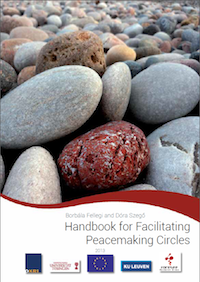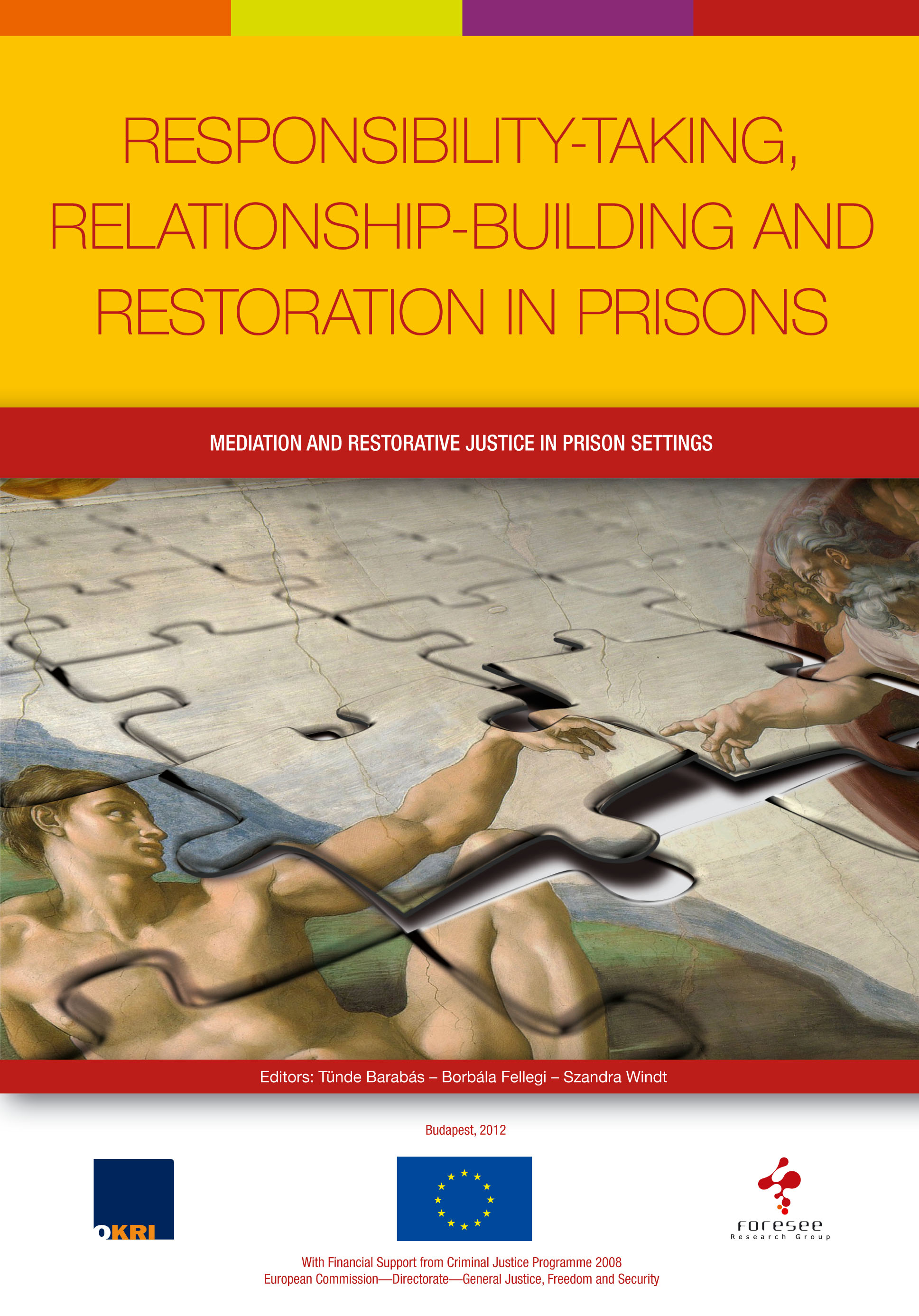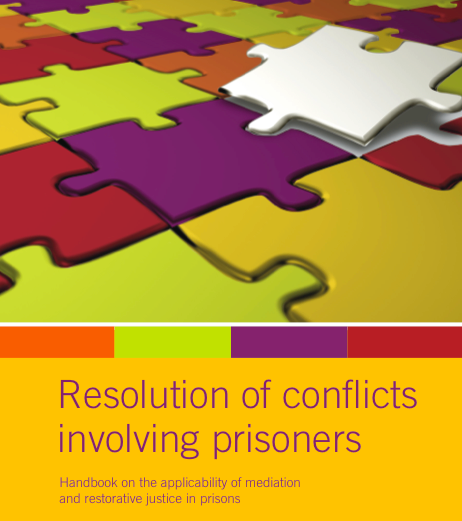“This workshop intended to make a link between professionals dealing with peaceful conflict resolution techniques, on the one hand, and with the issue of radicalisation and hate crimes, on the other. During the interactive day the attempt was to think loudly and collectively on the above-raised questions: mapping the possible connection points, shared dilemmas, ideas, lessons learnt during our activities and future directions concerning the fields of radicalisation-prevention and conflict resolution – with the possibility to being self-critical and highlightening both successes and challenges.
Dr. György Vókó (director of OKRI), Marie Boháčová, consortium leader of the lifelong learning Grundtvig project REDICT and Dr. Borbála Fellegi (founder and CEO of Foresee Research Group) opened the conference, welcoming the guests. The participants coming from Czech Republic, Slovakia, Lithuania, Italy, Austria, England, Germany and Hungary represented a wide range of experts, including lawyers, social workers, mediators, researchers, judges, prosecutors and policy makers. In a highly interactive way the whole day was devoted to focus on community problems and solutions concerning the issue of intergroup conflicts and prevention of radicalisation. The event coincided the 5th anniversary of founding Foresee Research Group.
Modern times require new ways of resolving problems besides the classical criminal justice approach. Several examples have been brought forward about how we can experience radical manifestations around us in everyday life. The workshops have been focusing on the motto “What do we do, or what can we do in this case?” In the spirit of “Life Long Learning” work has been started.
Mr. Péter Krékó (director of Political Capital Institute, Hungary) gave the first presentation titled “Living without taboos - how to prevent radicalisation in interethnic communities?”
He presented research around the topic of how taboos can affect a community, how far is information conveyed by politics consistent with public opinion, what tensions are caused by the possible differences, what social responses and waves can be triggered by the differences, if and how these could lead to radicalism. According to him taboos are also about telling or not telling the truth. Taboos are often barriers for difficult but open conversation, the lack of which can lead to radicalism and make the speaker appear unauthentic. Talking about taboos is not equal to hate speech!
Mr. Krékó was followed by the part titled “Mediation projects in intercultural communities” where two presenters showed their work. The first was MGR. Zuzana Vasicakova Ocenasova, mediator and dance movement therapist from Slovakia. She reported the experiences of two research projects. The first was Conflict management good practices research project 2011 – 2013 (country-wide mapping), the other was Community mediation and conflict facilitation project 2013 (field work in Eastern Slovakia, Raslavice).
Topics of the presentation: What can we do about the expectations towards the actors in power in making decisions and providing protection for us? What can we do with the fact that the word “conflict” carries a negative connotation so it is rather being avoided? What can be done with the motivations behind community conflicts: that people want to feel safe, they need a space to live, they need an identity and to maintain contacts within the community.
The more layers of the conflict we are able to explore and the more participants can be involved, the greater is the chance for a sustainable agreement to emerge.
The magic of conflict transformation lies in the conflicts to be seen as opportunities that help forming the group cohesion and identity. Also to be seen as natural indicators of unspoken hidden problems which need to be dealt with. It is also a very important aspect how this knowledge can be transferred into practice.
Ms. Gabriella Benedek – national expert of the GPCCM project and project manager of the ALTERNATIVE project (Foresee Research Group, Hungary) – presented ALTERNATIVE, a research project started in February 2012 in "Developing alternative understandings of security and justice through restorative justice approaches in intercultural settings within democratic societies".
“What does it mean to live in a just society? Who has the power defining justice? How can justice be achieved? Is justice universal and a moral concept or rather individual and relative and relational?” - such questions are formulated in the research.” The aim is to provide an alternative and deepened understanding based on empirical evidence of how to handle conflicts within intercultural contexts in democratic societies in order to set up secure solutions for citizens and communities.”
After the above three presentations the participants started working in small groups. The purpose of the first small-group meeting was to make the participants to get to know each other, share their experiences and to be able to formulate questions about conflict resolution and radicalism.
After getting to know each other MR. GYÖGY ZSOMBOK – director of the National Protective Service in Hungary – presented a presentation, entitled „Behind the scenes: the killings against Roma in Hungary from the eyes of the chief policeman” about a series of crimes, which were specifically directed against Roma, followed by the results of the investigation.
After the presentation, which demonstrated in a dramatic and shocking way how radical manifestations can be caused by hatred, a film, titled “Beyond Right and Wrong: Stories of Justice and Forgiveness” was presented. This film “tells the stories of people who both endured and perpetrated cruelty and aggression in the genocide in Rwanda, the violence in Israel/Palestine, and the ‘troubles’ in Northern Ireland”. This film is about extreme situations but is actually showing everyday life. It is shown that there is forgiveness even in such conditions and shows how the victims get to forgiveness. The cycle of violence can be broken, the film ends with this positive experience.
After these two emotionally powerful insights the workshop continued in three smaller groups again. Participants found it difficult to speak after the preceding events but eventually highly meaningful conversations evolved. Rich, deep and valuable ideas were produced focusing on the importance of trust, understanding and forgiveness. Some of the topics and rhetoric emerged from the discussions: Revenge will not solve anything, just start an endless process that can be broken with understanding and forgiveness. Who suffers more: the perpetrator or the victim? Who can judge it? If you look back, your hate is getting stronger, but what if you look ahead? How is the victim able to say to the man who committed terrible violence against her or against her family that “You have hurt me but I am listening to you”, and how she got to the point that she said: “We should learn how to live side by side.” Lots of questions swirled in the air and during the small-group conversations even more came, which are worth dealing with and should be dealt with. Forgiveness is liberating. “I just want to live my life and I just let you to do the same, I let you go.” (A Rwandan women to the man who killed her five children) There are still a lot to do till we would be able to say the same, if we ever could.
Mr. Harald Weilnboeck from the Radicalisation Awareness Network (RAN) of European Commission held the “Closing thoughts and move forward” part of the conference, presenting the objectives and operation of their European network of practitioners and policy makers as well as their future plans and goals.
The conference was ended with the performance of the Roma band THERNE PHRALA . They played authentic gipsy music, which inspired many participants for dancing, providing a pleasant relief after the daylong discussion on complex issues.
On the whole it seems that huge knowledge lies within groups and individuals themselves; observations, feelings, conclusions, experiences, which may gain even more meaning if we share them.
The reason for this day becoming so useful and good was the diversity of the participants. This conference was not only about the variety of ideas but also that of nations. Many were working together listening to and learning from each other in an open-minded, respectful, inspiring and joyful atmosphere.
Photos of the event can be found here.
The photos were taken by: Marietta Kleineisel, József Novák and Kitti Salamon














No comments